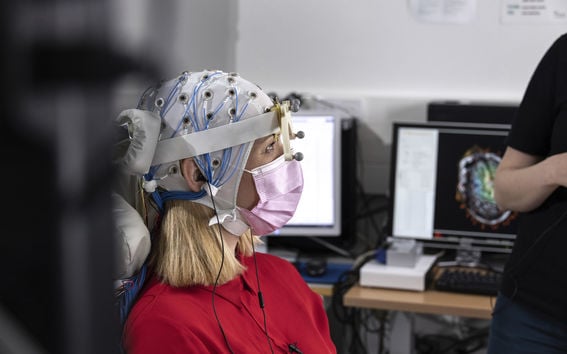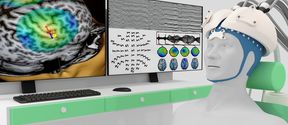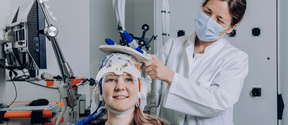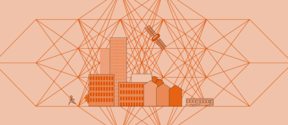A new collaborative project in neuroscience, which is being carried out by the University of Helsinki and Aalto University and which originates in the Multi-Channel Psych programme of the Wellcome Leap organisation, has received a grant of over €2 million for a period of three years.
The consortium consists of 12 operators, with four research groups contributing from Finland. From the Neuroscience Centre of the University of Helsinki, participating in the project are the research groups led by Research Director Satu Palva and Academy of Finland Professor Eero Castrén, while Professor Risto Ilmoniemi’s and Professor Matias Palva’s research groups are contributing from Aalto University’s Department of Neuroscience and Biomedical Engineering.
“The Multi-Channel Psych programme includes 10 research groups from the United States, the University of Oxford in England, as well as the PlaStiM group established by the University of Helsinki and Aalto University. The goal of the consortium is to extensively collaborate in identifying biological mechanisms of depression, striving to achieve a genuine leap forward in understanding the cerebral mechanisms of depression,” explains Satu Palva, leader of PlaStiM from the University of Helsinki.
In the project, the researchers will investigate cognitive symptoms associated with depression and the brain mechanisms of the disease. Their goal is to identify mechanistic biomarkers for diagnosing depression that would enable the personalisation of therapies and the prediction of treatment outcomes. Other topics to be investigated in the project include brain plasticity through both behaviour and brain stimulation.
New biomarkers for identifying different biotypes of depression
In the project, researchers at the University of Helsinki will employ magnetoencephalography (MEG) to survey the systemic brain mechanisms of depression. MEG is a brain imaging technique that makes it possible to measure the electrical functioning of the human brain with high temporal resolution, enabling the study of the neural basis of cognitive functions.
“Our goal is to understand changes in the functional networks of the brain and phenomena of brain dynamics related to depression. We aim to develop classification indicators based on network-level changes in the brain, which would be able to identify biotypes of depression, that is, various neural causes for similar symptoms,” Palva explains.
“In conjunction with depression, the plasticity of the nervous system decreases, while therapies boost brain plasticity. We expect this to be reflected in changes in the neural networks of the brain,” Academy Professor Castrén adds.
The goal of the research groups at Aalto University is to measure behavioural and brain stimulation responses in depressed individuals, and to utilise these data in the development of novel biomarkers. Combined with the brain imaging research conducted at the University of Helsinki, these efforts can result in techniques that can help make therapies increasingly targeted and precise.
Professor Risto Ilmoniemi from Aalto University is contributing to the project with an algorithm-controlled brain stimulator, which his group is currently developing in the ConnectToBrain project.
“The goal is to design classification indicators for depression by stimulating brain regions associated with depression with magnetic pulses and measuring the resulting activation and its spread in the brain. We also intend to target the stimulation with even more precision,” Ilmoniemi says.
In charge of patient examinations is Pantelis Lioumis, who received his doctoral degree in magnetic stimulation from Aalto University in 2012 and who has international experience of brain stimulation, also in depressive patients.
Professor Matias Palva’s contribution to the project is a video game-based technical solution that will be used to survey the cognitive and affective symptoms of depression. Palva’s group is also developing the computational modelling of brain function that will make it possible to create individual ‘virtual brain models’ for targeting brain imaging and brain stimulation techniques.
The close collaboration between researchers from the University of Helsinki and Aalto University is a continuation of the Helsinki Brain & Mind network, which was established in 2019 to promote cooperation in the field of neuroscience in the Helsinki Metropolitan Area.
Link to the original news article (University of Helsinki)










